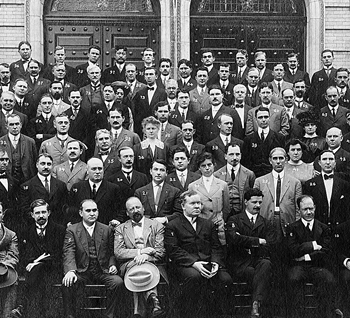
Courtesy of Fordham Archives
In September of 1912, Fordham was the site of a watershed moment in the history of psychoanalysis.
Renowned psychiatrist and psychoanalyst Carl Jung delivered a series of lectures that outlined the future of his work—including a decisive break from the theories of his friend and colleague, Sigmund Freud.
Jung in the Academy and Beyond will kick off with a free public lecture on Friday, Oct. 26 at 7 p.m., in Keating First Auditorium, by Joseph Cambray, Ph.D., president of the International Association for Analytic Psychology and a faculty member at Harvard Medical School, titled “Jung, Science, and German Romanticism: A Contemporary Perspective.”
The conference will continue on Saturday, Oct. 27, beginning at 8:30 a.m. in Tognino Hall, Duane Library, featuring keynote speakers: Eugene Taylor, Ph.D., professor of psychology at Saybrook University and senior psychologist with the psychiatry service at Massachusetts General Hospital; Ann B. Ulanov, Ph.D., the Christiane Brooks Johnson professor of psychiatry and religion at Union Theological Seminary; and Martin A. Schulman, Ph.D., former editor of The Psychoanalytic Review, which published Jung’s original lectures in its inaugural edition.
For registration and schedule information, visit jungatfordham@fordham.edu.
